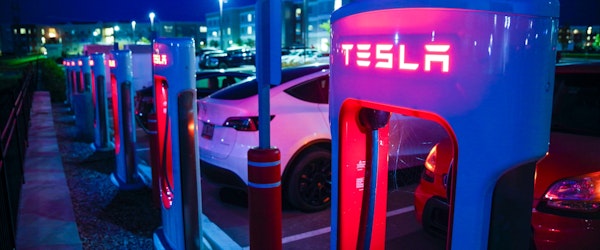
Copper Cable Theft Plagues EV Charging Stations
Wednesday, June 19th, 2024 Insurance Industry Property Risk Management TechnologyIn Seattle, two men used bolt cutters to steal copper-laden charging cables from an EV charging station in a shopping center parking lot. This incident is part of a growing trend of cable thefts at EV charging stations across the country, driven by the high value of copper on global markets. The stolen cables often disable entire charging stations, leaving EV owners stranded and exacerbating concerns about the availability and reliability of charging infrastructure.
The rise in cable thefts is occurring amidst significant efforts by major U.S. automakers like Stellantis, Ford, and General Motors to promote electric vehicles (EVs) as a key strategy to combat climate change. These companies have invested billions in EV production, with ambitious goals to increase the percentage of EVs in their fleets. However, the increase in cable thefts undermines these efforts by adding to the challenges already faced by potential EV buyers, including concerns about charging availability and charging times.
Electrify America, which operates the second-largest network of direct-current fast chargers in the U.S., reported a sharp increase in cable thefts. In 2023, 125 cables were cut, and by May 2024, the number had already reached 129. Similar trends have been reported by other charging companies like Flo and EVgo, with frequent thefts in areas such as Seattle, Nevada, California, Arizona, Colorado, Illinois, Oregon, Tennessee, Texas, and Pennsylvania.
In larger cities like Houston, the impact is particularly severe. One Tesla station in Houston had 18 of its 19 cords stolen, forcing numerous EV drivers to seek alternative charging stations. The thefts not only cause inconvenience but also raise operational costs for charging companies, as replacing a single cable can cost around $1,000.
The theft of EV charging cables is driven by the high price of copper, which reached nearly $5.20 per pound in May 2024. While thieves can sell the stolen copper for about $15 to $20 per cable, the actual cost to replace the cables is significantly higher, creating a substantial financial burden for charging companies and municipalities.
To combat this issue, charging companies are enhancing security measures, including installing more security cameras and collaborating with law enforcement. Electrify America is working closely with Seattle police to track down suspects using surveillance footage. In Houston, police are inspecting recycling centers to identify stolen copper, although this is challenging since thieves often remove the insulation from the cables before selling the metal.
The Recycled Materials Association is also involved, issuing scrap-theft alerts to help its 1,700 members identify and report stolen goods. Despite these efforts, the remote locations of many charging stations make them vulnerable to theft, necessitating additional security measures.
The increase in cable thefts highlights a significant hurdle in the broader adoption of EVs in the U.S. With public concerns already high about the availability and reliability of charging infrastructure, the thefts further deter potential buyers. Automakers are heavily invested in the transition to EVs, with companies like Stellantis, Ford, and General Motors setting ambitious targets for EV production and sales. However, these efforts depend on a reliable and accessible charging network, which is now threatened by the rise in cable thefts.
Copper theft at EV charging stations is a growing problem that disrupts the charging network, inconveniences EV owners, and adds to the operational costs of charging companies. It underscores the need for enhanced security measures and greater collaboration between charging companies and law enforcement. As the U.S. continues to push for greater adoption of electric vehicles, addressing this issue is crucial to ensuring the reliability and accessibility of the EV charging infrastructure, which is essential for meeting climate goals and supporting the shift away from fossil fuels.





